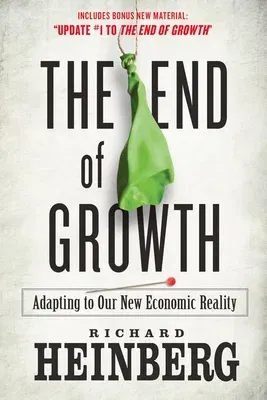The global economy has reached a turning point. As energy and food
prices escalate and debt levels explode, paths that led to economic
expansion now go nowhere. The recession will not end in a recovery, yet
in the coming years we can still thrive--if we maximize happiness rather
than the pursuit of growth at any cost.
Economics has failed us ... but there is life after growth!
Economists insist that recovery is at hand, yet unemployment remains
high, real estate values continue to sink, and governments stagger under
record deficits. The End of Growth proposes a startling diagnosis:
humanity has reached a fundamental turning point in its economic
history. The expansionary trajectory of industrial civilization is
colliding with non-negotiable natural limits.
Richard Heinberg's latest landmark work goes to the heart of the ongoing
financial crisis, explaining how and why it occurred, and what we must
do to avert the worst potential outcomes. Written in an engaging, highly
readable style, it shows why growth is being blocked by three factors:
- Resource depletion
- Environmental impacts
- Crushing levels of debt
These converging limits will force us to re-evaluate cherished economic
theories and to reinvent money and commerce.
The End of Growth describes what policy makers, communities, and
families can do to build a new economy that operates within Earth's
budget of energy and resources. We can thrive during the transition if
we set goals that promote human and environmental well-being, rather
than continuing to pursue the now-unattainable prize of ever-expanding
GDP.
Richard Heinberg is the author of nine previous books, including
The Party's Over , Peak Everything , and Blackout . A senior
fellow of the Post Carbon Institute, Heinberg is one of the world's
foremost peak oil educators and an effective communicator of the urgent
need to transition away from fossil fuels.

